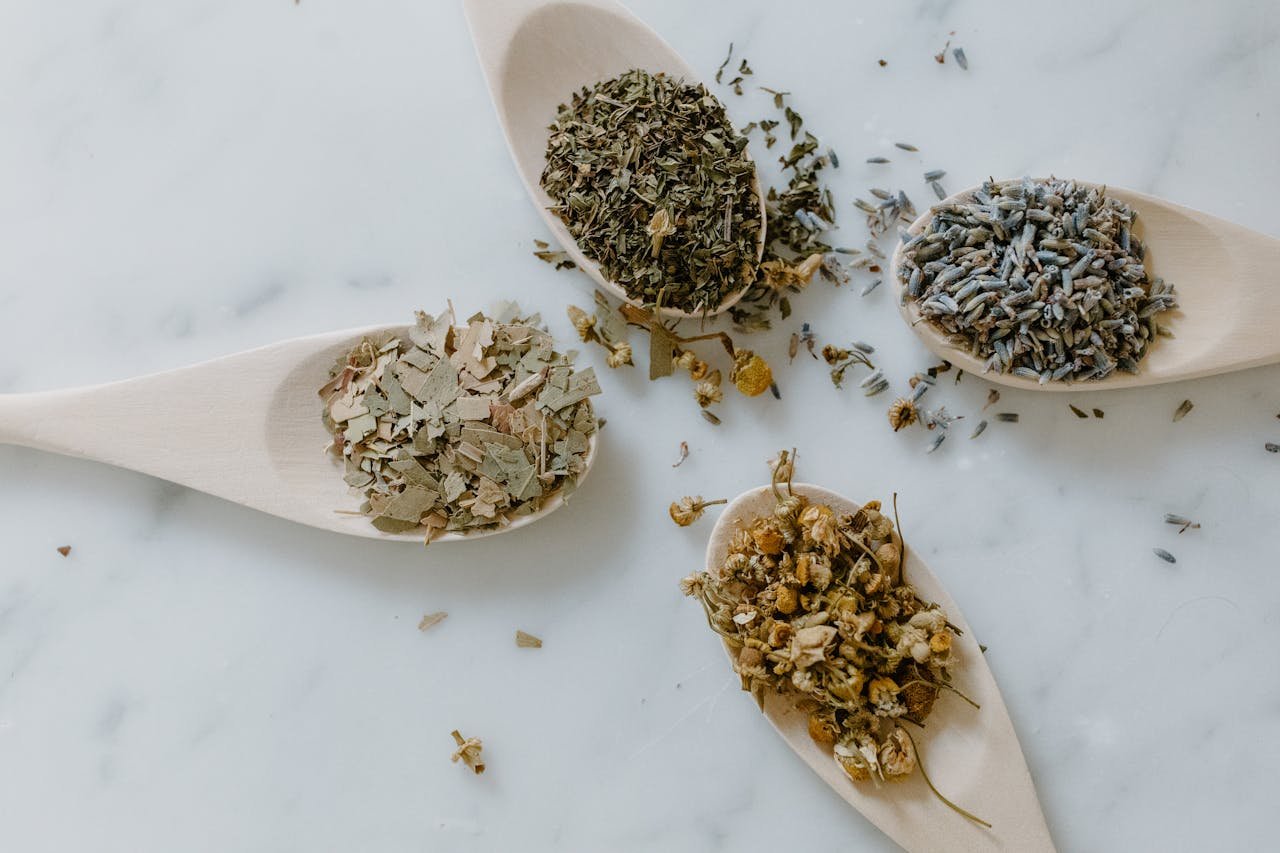When cold and flu season strikes, one of the most uncomfortable symptoms is respiratory congestion. The constant coughing, tight chest, and difficulty breathing can leave you feeling exhausted and overwhelmed. While over-the-counter chest rubs can offer temporary relief, many people are turning to natural, DIY herbal chest rubs for a safer, effective alternative. These homemade remedies not only help clear the airways but also soothe inflammation, ease coughing, and promote better sleep.

DIY herbal chest rubs are a fantastic way to combine the power of essential oils and herbs with natural carrier oils like coconut or olive oil. By using ingredients like eucalyptus, peppermint, and lavender, you can create a chest rub that not only smells amazing but also provides therapeutic benefits to ease respiratory discomfort. In this guide, we’ll walk you through the process of making your own herbal chest rub at home, explain the benefits of key ingredients, and show you how to use these rubs for maximum relief.
The Benefits of Using Herbal Chest Rubs for Respiratory Comfort
Herbal chest rubs are a wonderful, holistic approach to relieving respiratory issues like congestion, coughing, and tightness in the chest. By applying them directly to the skin, the active compounds in essential oils are absorbed and help to break up mucus, soothe irritation, and open up the airways.
Why Choose DIY Herbal Chest Rubs?
- Natural Ingredients: DIY rubs allow you to control what goes into your chest rub, avoiding synthetic chemicals or petroleum-based products.
- Customizable Formulas: You can tailor your chest rub to your specific symptoms, choosing herbs and oils that target your needs.
- Cost-Effective: Making your own chest rub is often more affordable than buying store-bought versions, especially if you already have essential oils at home.
- Soothing Relief: The warmth of the rub helps relax the muscles and ease breathing, while the herbs support faster healing.
1. Eucalyptus and Peppermint Chest Rub for Clear Breathing
Eucalyptus and peppermint are the stars when it comes to clearing up respiratory congestion. Both of these herbs contain powerful decongestant properties that can help to open up the airways, reduce mucus, and make it easier to breathe. Eucalyptus, in particular, is well-known for its active ingredient, eucalyptol, which is often used in commercial chest rubs for its ability to relieve sinus and bronchial congestion.
Benefits of Eucalyptus and Peppermint:
- Eucalyptus: Known for its decongestant and anti-inflammatory properties, eucalyptus is great for breaking down mucus and relieving coughs.
- Peppermint: Peppermint oil contains menthol, which provides a cooling effect and helps reduce the sensation of tightness in the chest, making it easier to breathe.
How to Make Eucalyptus and Peppermint Chest Rub:
- Ingredients:
- 1/4 cup coconut oil (or another carrier oil like olive or jojoba oil)
- 2 tablespoons beeswax (optional for a thicker consistency)
- 10 drops eucalyptus essential oil
- 10 drops peppermint essential oil
- Instructions:
- Melt the coconut oil and beeswax in a double boiler until fully liquefied.
- Remove from heat and stir in the essential oils.
- Pour the mixture into a small glass jar and let it cool and solidify.
- Apply to your chest, throat, and back to ease congestion.
2. Lavender and Chamomile Chest Rub for Nighttime Comfort
If nighttime coughing is keeping you awake, a calming chest rub with lavender and chamomile might be the perfect solution. Lavender is well-known for its relaxing properties and ability to reduce anxiety, while chamomile can help soothe irritated airways and encourage restful sleep. This chest rub is ideal for using before bed to help promote deep, peaceful breathing and a good night’s sleep.
Benefits of Lavender and Chamomile:
- Lavender: Helps to relax the body and mind, reduce stress, and encourage better breathing, especially before bedtime.
- Chamomile: Chamomile has anti-inflammatory and soothing effects, making it ideal for calming irritated airways and reducing coughs.
How to Make Lavender and Chamomile Chest Rub:
- Ingredients:
- 1/4 cup olive oil or almond oil
- 2 tablespoons beeswax (optional)
- 10 drops lavender essential oil
- 10 drops chamomile essential oil
- Instructions:
- Melt the olive oil and beeswax in a double boiler until combined.
- Stir in the essential oils and pour the mixture into a small jar.
- Let it cool before applying to the chest, neck, and back for nighttime relief.
3. Ginger and Cayenne Pepper Chest Rub for Warming Relief
For those suffering from a deep, stubborn chest cold, a warming chest rub with ginger and cayenne pepper can help stimulate circulation, reduce inflammation, and relieve tightness. Ginger is a natural anti-inflammatory, while cayenne pepper contains capsaicin, which helps to break up mucus and improve blood flow to the lungs.
Benefits of Ginger and Cayenne Pepper:
- Ginger: Contains anti-inflammatory properties that soothe inflamed airways and reduce coughing.
- Cayenne Pepper: Capsaicin in cayenne helps to break down mucus and improve circulation, making it easier to breathe deeply.
How to Make Ginger and Cayenne Pepper Chest Rub:
- Ingredients:
- 1/4 cup coconut oil
- 1 tablespoon grated fresh ginger or 10 drops ginger essential oil
- 1/2 teaspoon cayenne pepper
- Instructions:
- Melt the coconut oil and add the grated ginger or ginger oil.
- Stir in the cayenne pepper and allow the mixture to cool slightly before applying.
- Massage gently onto the chest and back for warming relief from chest tightness and coughing.
4. Thyme and Rosemary Chest Rub for Respiratory Infections
Thyme and rosemary are excellent herbs for fighting off respiratory infections thanks to their antibacterial and antiviral properties. Thyme has been traditionally used to treat coughs and bronchitis, while rosemary can help clear blocked airways and soothe irritated lungs. This chest rub is great for those dealing with bronchial infections or lingering coughs.
Benefits of Thyme and Rosemary:
- Thyme: A natural antimicrobial that fights infections, thyme also acts as an expectorant, helping to expel mucus.
- Rosemary: Clears blocked airways and supports overall respiratory health, making it easier to breathe deeply.
How to Make Thyme and Rosemary Chest Rub:
- Ingredients:
- 1/4 cup olive oil or jojoba oil
- 10 drops thyme essential oil
- 10 drops rosemary essential oil
- Instructions:
- Combine the olive oil with the thyme and rosemary oils in a small jar.
- Stir well and apply generously to your chest, neck, and back to relieve respiratory discomfort.
How to Use Herbal Chest Rubs for Maximum Effectiveness
Using your DIY herbal chest rub effectively is key to getting the most relief. Here are some tips on how to apply and use chest rubs for respiratory comfort:
- Apply Generously: Massage a generous amount of the chest rub onto your chest, throat, and back. The warmth of your hands will help the oils penetrate your skin and work more effectively.
- Inhale the Aroma: Take slow, deep breaths after applying the chest rub to inhale the therapeutic properties of the essential oils.
- Use Before Bed: Apply the rub before bedtime to help open up your airways and promote better sleep, especially if you have nighttime coughing.
- Reapply as Needed: You can use the chest rub multiple times a day, especially during the peak of cold or flu symptoms.
Additional Tips for Respiratory Comfort
In addition to using herbal chest rubs, there are other natural remedies you can try to further alleviate respiratory discomfort:
- Stay Hydrated: Drink plenty of fluids, including herbal teas, to help thin mucus and soothe irritated airways.
- Use a Humidifier: Adding moisture to the air can prevent dryness in your respiratory tract and reduce coughing.
- Elevate Your Head While Sleeping: Sleeping with your head slightly elevated can help prevent mucus buildup and make breathing easier at night.
- Try Steam Inhalation: Herbal steams with eucalyptus or peppermint can provide immediate relief by clearing congested airways.
Conclusion
DIY herbal chest rubs are a simple, cost-effective, and natural way to relieve respiratory discomfort during cold and flu season. By combining essential oils like eucalyptus, peppermint, and lavender with carrier oils, you can create a soothing chest rub that helps ease congestion, reduce coughing, and promote better breathing. These homemade remedies not only offer relief from symptoms but also support overall respiratory health and relaxation.
When you’re looking for a gentle yet effective alternative to store-bought chest rubs, making your own with natural herbs and oils can provide the comfort and relief you need during those challenging cold and flu days.









